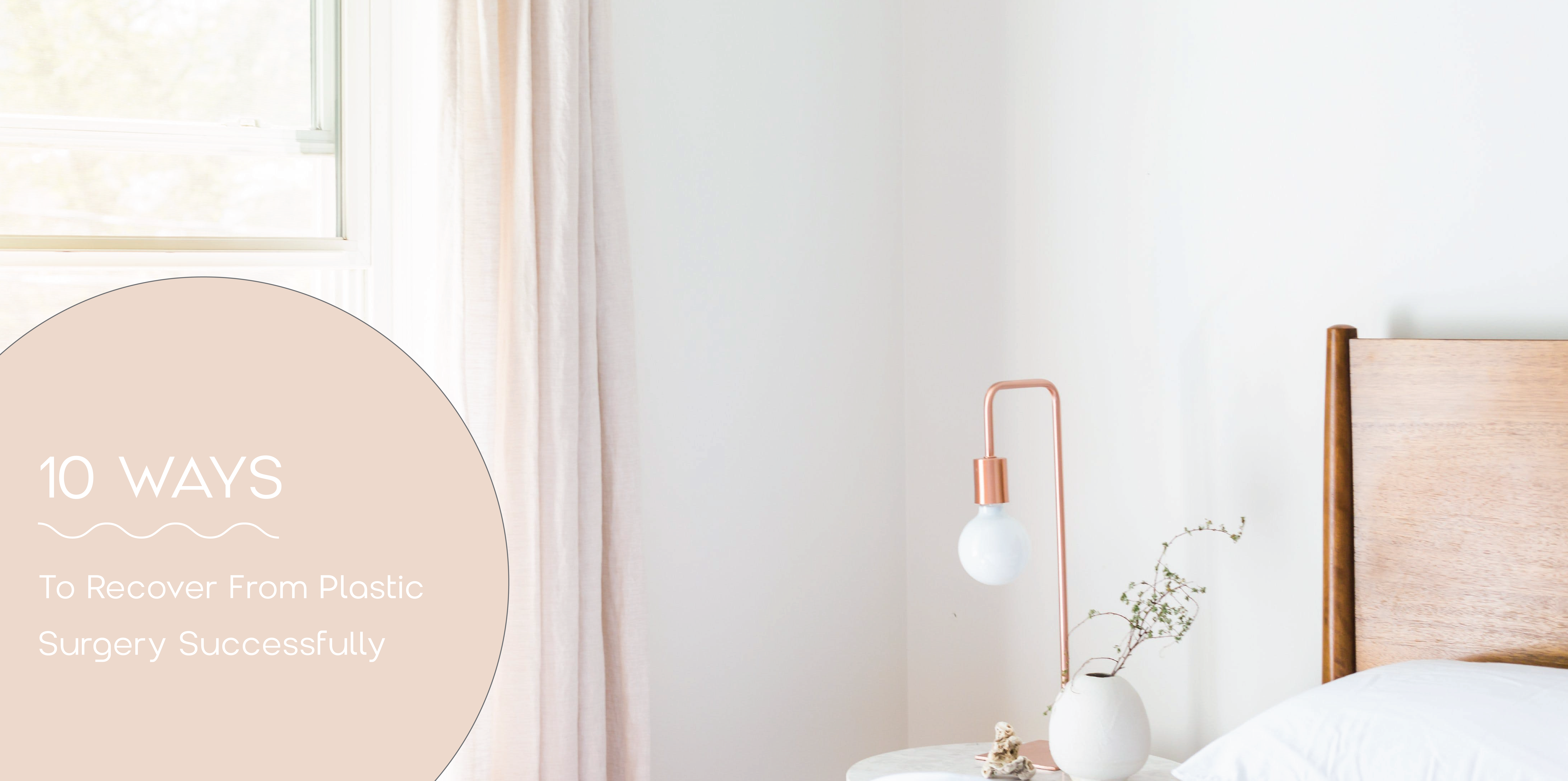10 Ways To Recover From Plastic Surgery Successfully

10 Ways To Recover From Plastic Surgery Successfully
Surgery can be a significant disruption in your life, it takes time to heal and get back to normality. Outside of the rewarding results, there is some ground work (and rest!) to getting back to yourself and into routine again. Depending on the type of surgery you’ve had, recovery time can vary, it can take anywhere from 2-6 weeks. It’s important to know that every person is different, and each body will heal differently.
We’ve put together some key things that will allow your healing period to be as smooth as possible!
Prepare your home and your recovery room
Now is the time to create your nest, your little cloud for recovery. Below are a few things that will give you comfort and some convenience during your down time as you heal.
- Prep your bed - choose the fluffiest comfiest doona and pillows, ultimate comfort!
- Get a silk robe - a very convenient garment that is easy to take on and off, plus it feels amazing
- Eye Mask - purchase an eye mask to slip on during the day when you’re trying to sleep, the best way to block out unwanted light
- Entertainment - have a library of TV shows, movies and books to read to keep your mind busy as you are bed bound
- Your phone - have it close by to call or text friends and family
- Chargers and headphones - have all chargers and headphones close by and easy to reach, the less walking the better
- Self care - keep it cute with your skincare, face wipes and hair ties at the ready. You’ll feel so much better with your little luxuries beside you
- Medications - keep all medications by your bedside, and don’t forget to take them!
Arrange a support person
This person will drive you to and from the hospital, as after most surgery you cannot drive. Have someone you trust and love to help you in the moments following your surgery. As you may experience some low moods once you leave hospital, your support person needs to be someone that can show you love during these times. This person will also help out at home and may see you in a vulnerable way - you need to be comfortable with them.
Stay hydrated
Create a hydration station by your bed, keep your water bottle close. Flush out toxins and a build up of medication after surgery, and speed up the healing process with ample water. Some pain medications and an abrupt stop in daily exercise or activity can give you post-operative constipation, drinking lots of water can prevent this. Pop some lemon in there to make it a bit more exciting! Buy yourself an emotional support water bottle!

Eat well
Avoid salty foods as too much sodium can increase post-operative swelling. Although those pre packaged meals are appealing after surgery due to convenience, they can be very high in sodium so it’s best to steer clear. This is where your support person can help out, request foods that have dark leafy greens and are also high in collagen.
Collagen and anti-oxidant rich foods will assist in skin structure and the prevention of blood clotting. Eat lots of eggs, beans, fish and veggies! Vitamin C will also assist in cell structure which leads to faster healing. Wonderful foods for reducing inflammation include mushrooms, pineapple and papaya. Eat plenty of these to reduce swelling and support the bodys' immune system.
No vaping or smoking after surgery (or before)
This is a big no no. Stop smoking or vaping one month before surgery and one month following. Nicotine increases the risk of infections due to poor wound healing and a lowered immune system. This leads to a prolonged healing process, increased pain and discomfort during your recovery. You want to be back up and running, feeling and looking your best in good time, don’t let this habit hold you back.
Some other risks of vaping and smoking are:
- Thick lumpy scarring
- Small vessel damage
- Capsular contracture
- Implant malformations
- Blood clots
- Stroke
- Deep vein thrombosis
- Issues during surgery
Rest!
Following surgery is the ultimate time to let your body rest, and it’s absolutely essential. Adequate sleep and rest allows your body to release hormones associated with slowing down your breathing and relaxing muscles. It reduces swelling and inflammation around the wound, and speeds up your recovery time. You may find the most comfortable way to sleep during this time is on your back, especially if you’ve undergone breast surgery.
Attend your follow up appointments
Your follow up appointments with Dr Hertess are crucial and are essential to your recovery following a surgery. Touching base with your doctor allows for them to track your progress and check in on how your wound is healing. If you've had breast surgery you'll also need to have your drain removed at one of these follow up appointments. Our lovely team in clinic will book your appointments and will communicate with you regularly throughout this process. The number of follow up appointments will vary from one patient to another.

Wear your post op bra
Your post op bra is your bestie following breast surgery, it allows for easy drainage of excess fluid (from the lymphatic system) to reduce swelling. By compressing blood vessels and stopping red cells from migrating to the superficial layer of the skin, it reduces bruising. These bras promote circulation, reduce inflammation and in turn reduce pain after surgery. Compression bras maintain the new shape and size of the breasts after surgery, and also prevent postoperative sagging and infection. These garments also reduce the risk of blood clots and Deep Vein Thrombosis.
Take enough time off work
Do not rush back to work, take your time to recover. Let your workplace know that you won’t be back on board for at least 2 weeks. As we mentioned, this time will vary between patients. You will need your incisions to be healed enough that you can move with minimal discomfort. If your job entails more physical work, you will need to take more time off as any strenuous lifting or movement will delay healing and put you at risk of complications. Take a step back and give yourself time.
Refrain from exercising until your doctor has given the all clear
We know that exercise keeps us sane and is very important for your mental and physical health, however you’ll need to pump the breaks on any exercise for a bit! In the first week you can do very gentle walking around the house. After about 4 weeks, you can visit your doctor to discuss where your healing is at and what exercise is suitable at your stage. The main takeaway? Speak with your doctor to get approval on when you can go back to a normal exercise routine. Baby steps. 



